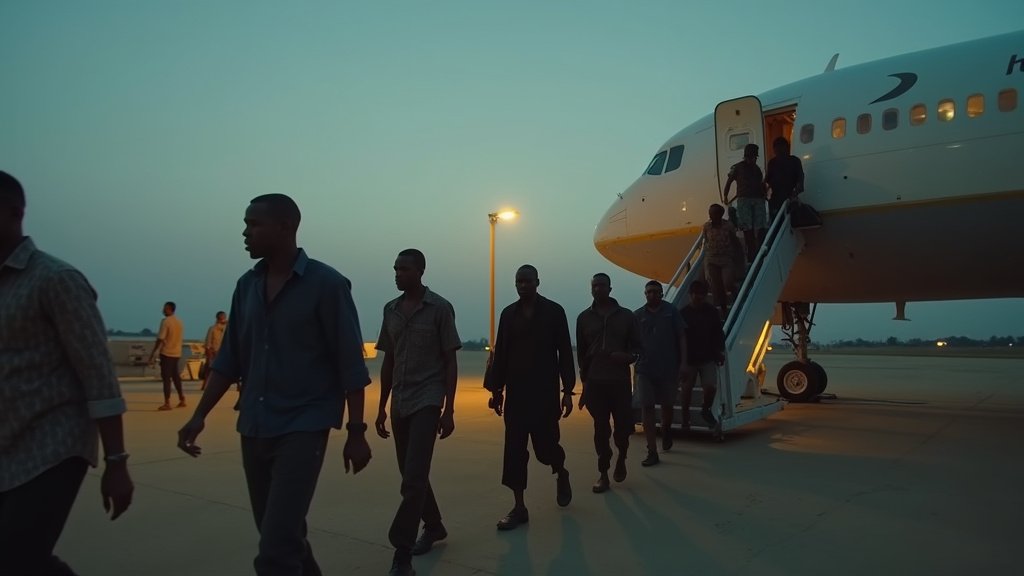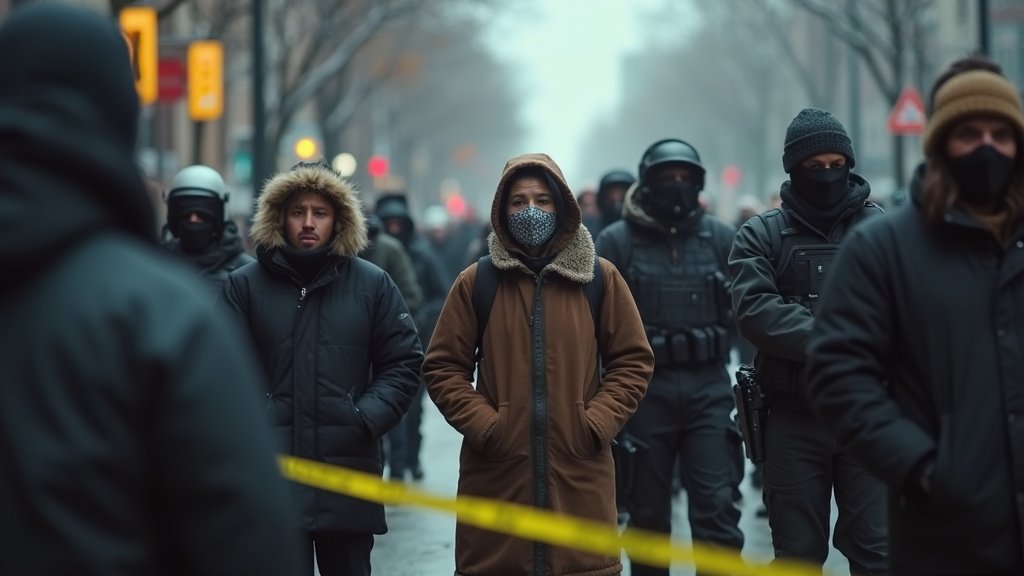Former Wagner Group Mercenary Apprehended at U.S.-Mexico Border: Implications and Insights
The U.S. Border Patrol made a significant apprehension on Saturday when they detained Timur Praliev, a former mercenary with the notorious Wagner Group, for illegally crossing the Rio Grande into Texas near Roma. This incident raises numerous questions surrounding border security, international relations, and the presence of individuals linked to controversial military organizations within the United States.
The Apprehension of Timur Praliev
According to reports from Border Report, Praliev crossed the border on foot, carrying two passports, a sum of $4,000, and a drone. The apprehension occurred amid heightened scrutiny of U.S. border security, an issue that has been a focal point of political discourse, especially during the Trump administration. As President Trump emphasized in his campaign, border security remains a contentious topic, with pledges for extensive deportation programs still resonating within political discussions.
Newsweek has reached out to the Department of Homeland Security for comments regarding this incident, but responses are pending outside of normal office hours. The implications of Praliev’s crossing extend beyond mere legal violations; they touch upon national security concerns related to the Wagner Group’s activities.
Understanding the Wagner Group
Founded by Yevgeny Prigozhin, the Wagner Group has gained notoriety as a private military company deeply involved in Russia’s ongoing conflict in Ukraine. The U.S. Treasury Department classifies this organization as a criminal entity, pointing to its involvement in serious criminal activities including mass executions, rape, and child abductions. The Wagner Group has been pivotal in providing military support to Russia, recruiting individuals, many of whom are former convicts, in exchange for clemency in their sentences.
Praliev’s affiliations with such a group raise alarms regarding his intentions upon entering the U.S. border. When questioned by agents, he claimed to be “a citizen and national of Kazakhstan,” despite being found with both a Russian and a Kazakh passport along with a significant amount of cash and a drone. The presence of a drone—often associated with surveillance and military applications—adds another layer of complexity to the situation, as U.S. authorities work to understand Praliev’s motives and potential threats he may pose.
Legal Proceedings and Sentencing
Upon his apprehension, Praliev was charged with illegal entry into the United States, a federal misdemeanor. He pleaded guilty to this charge and appeared before a federal judge in McAllen, Texas. During the proceedings, federal prosecutor Amanda McColgan expressed concerns for community safety, particularly due to Praliev’s connections with a group known for political violence.
U.S. Magistrate Judge J. Scott Hacker acknowledged the complexities of Praliev’s situation, questioning whether his affiliation with the Wagner Group warranted a more severe sentence. He noted, “I don’t think the punishment of time served versus 15 days is going to necessarily alter your decision of what you do in the future.” Ultimately, Praliev was sentenced to time served, but the judge ordered that he remain in federal custody following his sentence due to concerns surrounding his background and potential risks associated with his release.
The Broader Implications of Praliev’s Case
This case underscores critical issues concerning border security and the implications of international conflicts spilling over into the U.S. The presence of individuals with military backgrounds, especially those affiliated with organizations like the Wagner Group, poses unique challenges for U.S. law enforcement and national security agencies. The apprehension of Praliev is a stark reminder of the complexities of modern migration patterns, where individuals fleeing conflict zones may also carry with them affiliations that could threaten U.S. security.
Moreover, the political landscape surrounding border security continues to evolve, particularly as the nation grapples with issues of immigration, national security, and the implications of international military conflicts. The Biden administration’s approach to border policy contrasts significantly with that of the previous administration, leading to ongoing debates regarding the effectiveness and humanity of border enforcement strategies.
What Lies Ahead?
As U.S. authorities continue their investigation into Timur Praliev’s motives and connections to the Wagner Group, the case serves as a crucial touchstone for discussions about national security and immigration policy. The implications of his apprehension are likely to resonate in political arenas, especially as lawmakers seek to address the multifaceted challenges posed by migration, security threats, and international relations.
The Wagner Group’s activities, particularly in Ukraine and Africa, highlight the complexities of modern warfare and the role of private military companies in international conflicts. As nations grapple with the ramifications of these entities, the U.S. must remain vigilant in safeguarding its borders while addressing the humanitarian aspects of migration.
Conclusion
The apprehension of Timur Praliev at the U.S.-Mexico border encapsulates a myriad of issues surrounding border security, international relations, and the legal ramifications of illegal entry. His connections to the Wagner Group, a known criminal organization involved in serious human rights abuses, raise significant concerns about national security and the potential threats posed by individuals crossing into the U.S. As investigations continue, it becomes increasingly critical for U.S. authorities to navigate the delicate balance between ensuring national security and upholding the values of justice and humanity in immigration policy.






